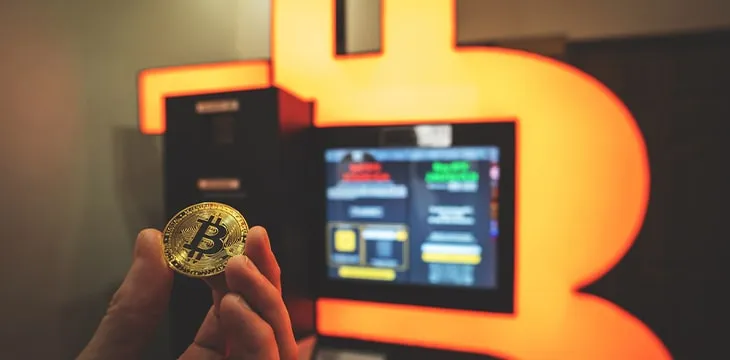|
Getting your Trinity Audio player ready...
|
A new report has recommended that the U.S. government should step up its oversight over digital currency ATMs to curb their alleged rising usage in drug and human trafficking activities. The report by a U.S Congress-linked agency blamed the lax regulations for ATM operators, stating they make it convenient for criminals to convert illicit cash to digital currencies and then send them globally.
Digital currencies are being increasingly used for drug and human trafficking, both within the U.S. and on a global scale, the report by the U.S. Government Accountability Office (GAO) said. And while there have been several measures to counter this vice, ATMs have largely been left to operate with minimal supervision, GAO believes.
GAO is a U.S. government agency that provides auditing and investigative services for the U.S. Congress. Known as the congressional watchdog, it publishes about 900 reports annually, with most being at the request of the members of Congress and others being general annual reports on key issues.
In its report on digital currencies, GAO observed that U.S. authorities are doing the bare minimum to stamp out crime related to ATMs. While ATM operators are required to register with the Financial Crimes Enforcement Network (FinCEN), they are not required to report their specific location routinely.
“This limits federal agencies’ ability to identify kiosks in areas that have been designated as high risk for financial crimes and could involve human and drug trafficking,” the report said.
To curb the use of digital currency ATMs in human trafficking, GAO suggested that FinCEN and the Internal Revenue Service (IRS) should join hands to get a firmer grip on the sector.
GAO isn’t the first agency to recommend firmer regulations for ATMs. Last year, the New Jersey State Commission revealed it had studied the sector for five years and discovered that criminals are targeting the ATMs for financial scams and questionable transactions. Later in the year, the Drug Enforcement Administration revealed that ATMs are being increasingly used to launder the proceeds of the drug trade.
The GAO report found that ATMs are being used more for sex trafficking than labor trafficking. In its study of 27 platforms in the online commercial sex market, the agency found that 15 of them accepted digital currency payments.
Another cited study by non-profit firm Polaris put this number at 23 out of 40 marketplaces. It also found that digital currencies were favored as payment methods because credit and debit card companies are more stringent on the use of their services.
In drug trafficking, GAO noted that digital currencies have also found quite a following. Despite authorities taking down Silk Road and jailing founder Ross Ulbricht, criminals have continued to operate in smaller marketplaces, which are harder to track and seize. They still rely quite heavily on digital assets as their primary payment.
GAO made two recommendations, the first being to the IRS, urging it to review the money service business registration requirements for ATM operators. It also recommended that FinCEN require ATM operators to submit the locations of their kiosks and update this information if the operating conditions change to allow for easy monitoring.
And as GAO calls for more stringent regulations for ATMs, another federal agency has issued a public alert over a new form of ATM scam. The Federal Trade Commission claimed that the new scam involves three key components—the impersonator, a digital asset ATM, and a QR code.
In some versions, the scammers impersonate public officials and law enforcement agents who call their victims and request some form of payment. In other instances, they pose as romantic conquests from dating apps or even representatives of lottery companies who tell their victims they’ve won some sort of prize.
They then direct the victim to withdraw cash from the bank and deposit it on a digital currency ATM. The scammers then send a QR code tied to their wallets to the victim, and once they scan it on the ATM, the scammers receive the digital currencies.
“Here’s the main thing to know: nobody from the government, law enforcement, utility company or prize promoter will ever tell you to pay them with cryptocurrency. If someone does, it’s a scam, every time,” FTC’s Cristina Miranda warned.
Follow CoinGeek’s Crypto Crime Cartel series, which delves into the stream of groups—a from BitMEX to Binance, Bitcoin.com, Blockstream, ShapeShift, Coinbase, Ripple, Ethereum, FTX and Tether—who have co-opted the digital asset revolution and turned the industry into a minefield for naïve (and even experienced) players in the market.

 07-05-2025
07-05-2025 





